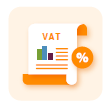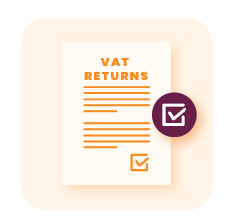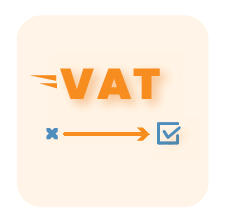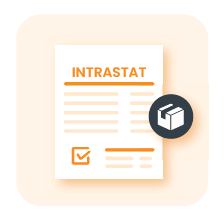Invoicing in Spain
VAT invoices in the European Union function similarly to tax receipts. They serve as the formal documentation of the amount of tax that has been charged and collected, thereby providing the definitive evidence of the tax amount due to the government.
Learn all about Invoicing requirements in Spain in our comprehensive guide below.
Selling in Spain?
Simplified Invoice
Simplified invoices, often referred to as tickets, can be issued for documenting specific transactions. Generally, input VAT cannot be claimed from these simplified invoices unless additional information is supplied. The circumstances in which simplified invoices can be issued include:
- When the invoice amount is less than EUR 400 euros (VAT included).
- When corrective invoices are required.
Simplified invoices are also permissible when the invoice amount does not exceed EUR 3,000, inclusive of VAT. These are typically used to document transactions such as:
- Sales in the retail sector (i.e. sales made to a non-taxable person for its consumption).
- Sales at the ultimate consumer’s residence.
- Sales in an ambulance.
- Passenger and baggage transportation.
- Restaurant and hotel services, as well as food and beverages for direct consumption.
In Spain, VAT invoices must be issued within a six-month period following the delivery of the product or service. Subsequently, these invoices are required to be retained electronically for a duration of ten years. Although this might seem like an extensive period, it is essential to keep them on hand for potential examination by tax authorities who may wish to review your tax records.
Electronic Invoices
Spanish legislation mandates that businesses utilize electronic invoices for dealings with government entities (B2G) and adhere to certain format and submission guidelines. These electronic invoices should be in an XML format called “FacturaE” and must include an electronic signature for verification.
For government-related transactions, invoices are to be submitted through the FACe platform, while business-to-business (B2B) transactions are processed via the FACeB2B platform. Nevertheless, the use of electronic invoices for other types of transactions remains optional. Additionally, invoices valued at less than 5,000 euros and those issued by foreign suppliers are not subject to the electronic invoicing requirement.
Last Updated: 13/12/2023
Disclaimer
The information provided by Global VAT Compliance B.V. on this webpage is intended for general informational purposes only. Global VAT Compliance B.V. is not responsible for the accuracy of the information on these pages, and cannot be held liable for claims or losses deriving from the use of this information. If you wish to receive VAT related information please contact our experts at support@gvc.tax








